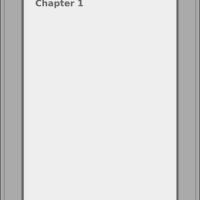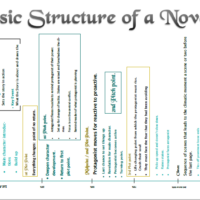by | Feb 1, 2017 | Blog, Own Writing
This is the current first chapter of something I have been working on since November. I would be interested in any feedback, you might have to offer.
Chapter 1: The sun comes.
Charon swore. The monitor he had been battling with for the last hour had flickered off yet again and had now filled the area with the smell of burnt plastic. “Typical.” He crawled under the desk and fought with the mass of wire that inevitably develops behind the desk of even the most fastidious of us. Eventually, he found the correct lead and followed it to the power socket. It had melted. Struggling to his feet he picked up the telephone and hit one of the autodial keys.
“Yes. It’s the front desk. Again. Put me through to IT please.” He waited for ten minutes on hold, listening to a very tinny, off-tempo, instrumental version of Rhinestone Cowboy which was played on a loop accompanied by Charon grinding his teeth. ‘A curse on the demon who came up with this damnable tune…‘ A crackling line broke him off mid-thought. Finally, someone had answered. The voice at the other end was muffled “Yes, and no, I cannot wait. My last security monitor has burned out. I’ve been chasing you lot for new ones for weeks.” the muffled voice droned excuses at the other end “Not your problem, huh?” He sighed “Exactly what is your problem? I mean we appear to have an IT department who won’t do any IT. At least not beyond telling me to turn it off and back on again. When you can eventually be pressed to send an engineer, there is never one available on the day and when they are they never appear. You do seem to have plenty of your ‘Sorry you were out’ cards which magically appear all by themselves.” The voice, however indistinct, seemed extremely familiar to him. This annoyed him. Mostly because the voice probably knew him too and was, therefore, doing this on purpose and probably found it extremely funny. Should he keep it to himself?
“Oh, bugger this!” Charon hadn’t meant to say that out loud but centuries of keeping to himself had led him into a habit of thinking aloud or rehashing conversations he had wished had lasted longer just for the company.
“Sir! Please moderate your…”
“Hermes? Is that you, you old reprobate!” He hadn’t seen his friend in nearly a century. After being dragged to the back of beyond to guard the foyer of an officially disused office block, he hadn’t seen much of anyone. It was dull but he didn’t complain. Who would he complain to? It paid and there was relatively little actual work to do. Weekends off too. There was a clatter at the other end of the line.
“What!?” He could hear the shock in his voice “How do you know my name? Who told you?” Paranoid as ever; some things never change.
“It’s me, Herm. It’s Charon. How did you end up on an IT helpdesk?” He laughed.
“Charon!? Well, I’ll be damned!” He replied. He probably should have reconsidered that expression given who he was actually talking to. Hermes continued sulkily “I am only on the telephone communications side of it. They won’t let me near any actual equipment. My presence seems to fry it.” Hermes sounded deflated. “My other role is far less exciting. I am also a bicycle courier, though not by choice. It was a punishment for something. Can’t remember what I did now. Deadlines don’t seem to be the forte of our ‘employers’. Eternity or nothing.”
‘How droll’ Charon thought. It was remarkable how little imagination their masters had. Even before they came here, and they still had their full powers, the gods could be quite creative in their petty vindications. They were still petty, capricious and vindictive but, now faced with modernity, they’d become downright dull if not lazy. Before he had been forced to manifest into human form, he had been little more than a creepy doorman. Once sucked out of the twisted collective imaginations of these bipedal apes, he was transplanted into the nearest appropriate human body and put back to work… as a security guard. As an abstract, he couldn’t just manifest. He’d had to be shoved into a random mortal. No bespoke form for him, oh no. Aside from bodies and scenery, not a lot had changed. The only difference in his circumstances seemed to be that the boat had gone and his feet stayed dry. He got the freedom to move around as he pleased but that was more due to the limit of their powers than any special consideration on their part, and he could still find himself in serious trouble if he was found to let the wrong person in. Once he had been chained up as punishment for ‘letting’ Heracles beat him up and get past him. ‘For a hero, that boy’s moral compass had been way off. Maybe he had a magnet in his pocket?’ He shook his head. Back to the point. “Hermes. Buddy. Can you please send me an engineer? I have about three hours and I need this getup and working. I have a load of the shiny-arses due to arrive for some big meeting and if the ‘wrong people’ just wander in, I am for it.”
“Who are the ‘wrong people’?”
“Who do you think? Mortals. ‘Lesser beings’, beings with a pulse and a birth certificate or anyone not currently in someone’s good books. You know what they’re like. Who can keep u?” Charon never understood the need for birth certificates. It just seemed odd to reward someone with a certificate just for being born. He remembered vaguely being told something about the certificate being given to the parents, not the child, but given that he and the others were forbidden from procreating, in case it raised uncomfortable questions, he’d never been inclined to look deeper.
“Oh, mortals.” Hermes paused “Do any of them really believe in us anymore? Most of them just look at me like I have given them a headache.” Hermes had been able to manifest. This meant that mortals, real mortals rather, couldn’t quite focus on him or fix his face in their heads. Hermes had not been alone in having mortals having this reaction. Zeus was not happy about it either. For a being that had spent hundreds of years pretending to be other people and creatures[1], it had surprised Charon that his new inconspicuous incarnation had raised such consternation.
“Not enough of them to make a real dent. At least not anymore. There are a few oddballs and the academic sort who think that we were mere ‘literary constructs of mortal experiences’. The Council[2] like to keep us as quiet as possible. Something about abiding the same set of conditions everyone signed when we came over.”
“I didn’t sign anything” Hermes’ snorted back a laugh “Who’s coming for this one?”
“All the biggest bullies in the playground of course and, as usual, yours truly is not invited. The standard story really; they all get to march in like they own the place and I get to bow and scrape and direct people to a lift they can see right in front of them.” It disgusted him that after thousands of years of loyalty, albeit reluctant, wouldn’t merit a more senior role. It was insulting that they had not invited him. Again. He wasn’t surprised. Then again, he didn’t know what he would do with new responsibility, he just knew he wanted it. He considered approaching Hades again next time he was in. “Come on, Herm, do it for a mate.”
“Just because it’s you, I’ll see what I can muster up for you. In return, you can meet me in that pub on the corner near your building. Oh, and you’re buying. TTFN” Hermes hung up.
“TTFN? Whatever next?” He looked around the foyer. It depressed him. Once it had shone. Gleamed even. The once brilliant matte white walls were streaked with mould, dust and algae where the roof and window seals had leaked. The chrome coatings on the barriers and bannisters were flaking and corroded, and the floor was covered in a carpet of cracked linoleum tiles, dead leaves and the litter which had blown in through a hole in the now boarded window panel from the playing field behind his building. He decided to kill time and at least get rid of the rubbish. As he swept looked down at his faded black uniform with the printed grey badge reading ‘Ferryman Security’. It was flaking. Decaying like everything else they had a hand in the mortal realm. He’d just put the broom away when a black -he assumed it was black, but the dirt made it hard to tell – van pulled up in front of the main doors. He went out to investigate. Before he could launch into his well-rehearsed ‘You can’t that park here, mate’ routine’ the driver leapt out, flashed him an ID, a fanged grin, and then slid open the side door of the vehicle.
“Herm said he owed you one. Where do you want this lot? You’ll have to sign for it.” He handed Charon a clipboard with one black-nailed, and slightly orange tinged hand, and indicated the boxes of equipment behind him with the other.
***
Within two hours Charon had a brand-new security system complete with intercom and automated doors. That demon had worked like, well, a demon, no human could have worked at that speed. Hermes had earned that pint. Maybe he should have offered the technician a cup of tea, but he was one of Arawn’s[3] crew and that lot gave him the creeps. The Underworld held perils in its belly but they were a law unto themselves and everyone steered clear. Charon did help him pack up his van, but this was only so that he would be gone as quickly as possible. He checked the time again. Twenty minutes to spare.
***
When people began to arrive, Charon trudged through his assigned scrip. It wasn’t hard. Ask the Name. Check the list for the name. Make them sign the visitors’ log, issue a badge, and give directions to the upstairs lounge. Some of them were no longer quite as ‘omni’ as they liked to pretend they were. He’d had to show several how to operate the lifts ‘surely they could have worked out lifts by now, but then they have only been human for a millennium. Why hurry?’ They still acted like the gods they had been, but that was the key phrase. Had been. They had lost their homes and their time was over. All they had to do was hang around and wait for the last of the memories to fade. This had been Yahweh’s idea of an easy way to get shot of all of them. He never could tolerate competition. What he hadn’t banked on was the way their stories had seeped into the cultures they now inhabited. Drama, poetry and prose had provided at least some of them an anchor to cling to. Holding them here whether they wanted to stay or not.
Charon looked through the list again. There was no sign of the organiser’s name but all the names had one thing in common. They were all the head of their respective pantheons. Their presence did not bode well. Gods, former or otherwise, only gathered like this if there was big trouble, and only if The Council had commanded it. He was perplexed that Zeus, Hades and Poseidon had all been invited while Odin’s name had been scrubbed off the list by a very angry hand. This struck Charon odd but thought no more of it. It wasn’t his job to ask questions. He just had to keep his head down and do the job. Don’t get involved. Getting ‘involved’ got people killed. He’d seen enough before the pass to tell him that much. He wondered What could have pulled them all to a rundown office block in High Wycombe? Then it dawned on him. Officially they were supposed to be keeping a low-profile and not attracting attention so it was a good idea for them to maintain an appearance of absence. setting up a base here was a damned sure-fire way of achieving that.
Just as Charon was making a decision over whether to attempt to get the kettle working, He arrived. The ‘Lord without limits’. With full entourage. None of whom were on his list. ‘That’s just great’. He pressed the door release and stood in front of the desk to properly greet him. “Ra, I had no idea you were coming. You did not appear on the list they gave me…”
“Charon, you know better than that. I do not need to make people aware I am coming.” He chided, gently “The sun always comes.” His voice was soft. Not deep but quiet and smooth. His mortal form had somehow become the mortal embodiment of his former self. His dark skin reflected a gold glow into the dark foyer. In the right light, it was uncomfortable to look at him. Charon wasn’t certain that this characteristic was entirely accidental, given Ra’s predilection for glamour and glitz.
“Can I lead you up to the meeting room, sir?’
“No. Thank you. I know where I need to be. Am I the first to arrive?”
“No, there are still some yet to get here, and some have not responded” Ra did not seem at all surprised or even interested by this. Charon continued. “I have sent them up to the second-floor lounge, as per the instruction. Let me assure you that Odin has not been invited.”
“That is because I did not invite him. He is not reliable when it comes to matters requiring discretion.” He waved his entourage away. “Can I be sure of your own, Charon?”
“Sir?”
“Yes, of course. You are not as loose with your words as some of your kind. Was there something else you wished to ask me? I am very busy.”
“I was wondering what happened to Aken?”
Sadly, he has already faded. His stories were not as strong or well known as your own. There was no anchor for him here and he vanished almost as soon as he left the shores of the Nun. Oh, well. He was never the best conversationalist. We barely notice his absence. I dare say we manage quite well without him” Charon said nothing but considered whether this was the whole truth. Ra had managed to bring that damned barque through the pass. Aken had been his friend and it stung to hear him so easily disregarded. Even the Olympians had found a way for Charon to pass through, though he suspected that came more out of a desire to not have to train another servant than any consideration on their part. He decided to mourn Aken later as his grief would not be well received here. Ra waited at the lift for someone to press the button for him. One of his own attendants scurried over and obliged, bowing and scraping. It was pathetic, thought Charon because in mortal form, gold skin and eyes aside, Ra looked like every other modern western businessman. It was this that The Council meant by ‘drawing undue attention’. Ra entered the lift and gave Charon a courteous nod. As soon as the lift doors closed, the previously prim and orderly attendants began whipping out magazines and cigarettes and calling lounge furniture out of thin air. This just would not do.
“Oi! You! Yes, you, with the horns and the flashy green coat. Put that out or go outside!.” The demon scowled at him and mooched out into the drizzle, pointedly allowing the door to slam behind it. The door shook in the frame and the diagonal crack in one corner grew another inch. Charon turned to the room at large. “Can you, please, not do that thing with the furniture? There are cameras in here. How am I supposed to explain to The Council, why the foyer was suddenly changed, into what can at best be described as a Turkish harem, in full view of the public?”
“Not our problem, chummy. While his nibs is up there, we might as well be comfortable down here. I reckon he doesn’t even realise we still exist when he’s swanning off on his jollies.” The others grumbled their agreement, and he saw their point. Hades pretty much ignored him until he wanted something too. Not their problem. Funny how many things were seen as ‘not my problem’ these days, when even a little consideration would make life so much more pleasant for everyone. How hard was it to just not make life harder for other people?
“Fine. Just keep the noise down I have work to do.” Arguing seemed pointless. This lot just didn’t care. He stomped off toward the kitchenette for a fresh cup of tea. From the back of the room, he heard another the click of a cheap lighter “And smoke outside!” he shouted without turning around to see who it was. Charon considered asking them to at least tone the room down too but figured the word ‘subtlety’ wouldn’t register with them. What was wrong with grey? Wasn’t monochrome the height of fashion again, or some such nonsense?
His thoughts were again interrupted by the arrival of the stragglers who demanded that he escort them up himself. He stood by the lift buttons and held the doors open. As they went up he pondered again why Zeus and his brothers had been invited. Zeus was never one to share power either and he’d have paid his weight in gold to see Zeus’s face when he received the summons to assemble. Hades too. Those three and their ‘honour’. A being like Ra ordering them about was going to grate on their nerves and the results would be entertaining, to say the least. The only other beings brave enough to issue orders to those three were The Council. That was a thought. If the Council hadn’t called this meeting, did they know about it? They were supposed to be notified of all cross pantheon meetings so they could send a representative. Not doing so could result in dire consequences. After he’d escorted the stragglers to the right room, he decided to switch on the cameras in that room and listen in from the second-floor reception desk. Their bickering would be something to laugh over with Hermes later and he was quite looking forward to that pint now. Ra had not gone in yet but he would bet money he was listening to every word they said before he did. He was waiting for everyone to arrive to make as showy an entrance as possible.
Sure enough, Ra went for showy. Both doors opened at once for him to stroll in with one hand in his pocket, his shirt sleeves rolled to the elbow and his jacket hooked on one finger over his shoulder. “Gentlemen, Ladies. Welcome. Have we all arrived? Splendid. ” The room was packed. Every chair around a dust covered meeting table had been taken.
“Why have we been dragged here, Ra? We are not your slaves to be ordered around! You know the law. Only The Council has the authority to summon us.” A gravelly voice demanded. Its owner, Zeus, had already occupied the chair at the head of the long table and was leaning back, with his sandalled feet in the table. Ra ignored the deliberate insult. He had refused to give up his seat to an older god. It wasn’t law but it had been an implied custom to show respect the elders of other Pantheons. Charon held his breath and watched as Ra sauntered across the floor between the hoard of irritable gods. He clearly enjoyed holding the attention of the room.
“I quite understand.” His voice remained calm and level. He gave a half smile which did not meet his eyes. “I know very well who each of you are and where your loyalties lay. I am also certain that you need no introductions to one another.” He walked to the window. “You all have your own grudges and scores to settle. I am sorry to disappoint you but they will not be dealt with here or now.” Staring out over the field to watch the train pass in the distance. “I invite you here for one reason alone; to give you notice to tidy up your affairs. Settle your arguments and make what peace you can,” The room erupted with concerned complaints. Who was he to dictate to them?
Outside and down the corridor. Charon frowned at the monitor. It was an awkward angle to observe from. All he could see were the tops of peoples’ head so he couldn’t see their expressions. He turned up the volume on the earpiece he was wearing.
“What are you blathering about, Ra?” The same gravelly voice cut through a chorus of voices all trying to drown out the others.
Ra turned his emotionless pale gold eyes on the speaker and then observed the rest of the table shrink back from him. Hades, who was lounging back in his chair paring his nails, raised an eyebrow at this pointed scrutiny. “Let our friend speak, brother. His presumption is proving most entertaining.”
“Friend? He is no friend of mine! He is a pretender; all pomp but no substance. He is no better than the foul usurper who stole our homes and sent us her to rot.”
“Well, this ‘pretender’ is tired,” Ra replied calmly. He sounded almost bored. Like what he said was of no real consequence to any of them. Even Charon was shocked. One thing he was sure about was that The Council had definitely not approved this. Zeus had confirmed that much. Should he tell them? If they found out and he hadn’t told them, there would be hell to pay. He stared back at the security screen, trying to stop his hands shaking and heart racing.
“Pardon? You bring us all the way here because you are… ‘tired’?” the sibylline voice of Quetzalcoatl intoned. “What does this have to do with us? Has it not occurred to you that some of us have had to travel quite some distance to get here?“. The camera view switched angles and he saw his face. He was still recognisable. The feathers might be gone but there was still something snake-like about the eyes and nose.
“I intend to fulfil my promise to Osiris. The earth will return to its primordial form and I shall take my place by his side as Amun. You have a year to tidy your affairs, inform your subordinates, and prepare yourselves. That is all.” With that, he left the room There was dead silence while the door was left to close quietly behind him.
Charon had heard every word and having watched the exchange on the security monitor, knew he was coming and ducked behind the desk. He did not want to be caught eavesdropping but this news was grave indeed. He needed more than a pint to deal with this news. This could mean the end of the world.
—
[1] Mostly for the purpose of getting into as many pairs of knickers as he could manage while not getting caught by the Mrs.
[2] The, Norns, Fates, Furies etc. Basically, it was made up of every group of abstracts deemed capable of getting the head gods to simmer down and behave themselves. The Muses had been kicked off some time ago for allegedly inspiring some rather unpleasant business involving an otherwise harmless vicar and a militant seagull, though nothing was officially proven…
[3] Celtic King of the Underworld.
by | Jan 20, 2017 | Advice, Blog
Writer’s First Rule.
People pay you for your work. Not the other way around. If someone asks you to pay money, ANY money, in order represent your work you need to do several things:
- Tell them you are no longer interested
- Block their number
- Add their email to your ‘blocked senders’ list
Preditors & Editors was an excellent source list of the good, the bad, and the evil in the world of writing services, but unfortunately, it appears to no longer be active.
The advance.
The sum that the publisher pays you which reflects expected sales. Unless you break the contract that’s yours regardless of how well your book sells
Earn-out
Well done. Your book has earned back your advance and then some. You now get to keep your royalties.
Rights
This is the permission you give to the publisher to publish your work in a specific form, language and place. A legitimate publisher will pay you for these rights as part of your contract, but not on a permanent basis. At the end of a set term they revert to you and if that publisher wants them back, they have to pay again. Do not sign any contract which gives the ‘publisher’ permanent rights.
Royalties
A payment structure which offers a percentage of each sale to you. An average figure would be 6-9% for paperback and 10-12% for a hardback. Ebooks earn a whopping 25%. Often the rate increases as more are sold. It is vital that you get a regular statement for these.
Getting paid
The publisher will give you an advance based on what they think they can sell, then royalties on each copy sold. If you have an agent, you will have to pay a small percentage in return for representation. Your royalties should be paid on at least a six-monthly basis from a large publishing house. Smaller ones may have a shorter schedule.
A £10k advance (lucky you) to sell your hardback novel at £10 each at a rate of 10% would earn the writer £1 per copy. They would have to sell 10,000 copies to earn out that advance. Selling anything over 10k copies is when they start paying you the rate switches around and the publisher gets £1 per copy.
Writer’s Second Rule
The agent only gets paid based on what you sell. You do not pay an agent to represent you. 15% is about average. and they don’t get paid until you do.
There may be odd business tax expenses that you need to take care of but these are infrequent and not the same as fees.
What are agents for?
- Handling contract negotiations
- Submissions of manuscripts to editors. Many of the big publishers do not accept manuscripts without an agent. You may struggle with this without an agent.
- Career advice
- Troubleshooting any problems between publisher or editor and you.
- Handling foreign rights, TV, film etc.
- Some might offer editorial assistance
How involved the get will depend entirely on the agent. Always be sure about what you want, and that they are prepared to provide it. If they want 15% of your hard earned royalty, they must earn it. Whether you opt for an agent is entirely up to you. Do not be tricked into believing you must have one for ‘legal reasons’. Anyone can hire a solicitor to look over a contract, but this is a one-off expense and it won’t mean giving up 15% of your sales.
How do I catch one?
You will need to write a convincing query letter along with a sample of the manuscript. Remember the agent won’t get paid unless it sells, they are going to need to be convinced that their time and effort won’t be wasted on a dead-parrot. If an agent accepts straight away or asks for a fee, walk away.
Writer’s Third Rule
Never pay a publisher. A publisher’s role is to print and sell books. The honest ones pay writers to produce work to print. If they ask you for money, run away. These publishers either have no ability or intention to provide marketing or distribution because you have already given them what they are looking for. Money. You would be better off doing it for free on Amazon, a free WordPress blog to serve as an author website, a free facebook page and a twitter account. Be aware that self-marketing without paid advertising is very time consuming and labour intensive (take it from someone who has been working their socks off trying to get a new start-up off the ground for the best part of a year).
Editors.
- Hired by a publishing house to buy the manuscripts for print and sale, or
- Freelancers who help writers get their work to a level where it is fit to be published.
Publishers’ editors are paid by the publishing house, not you, and will work with you until they are happy that the work is saleable. They are responsible for the quality of the finished product.
I am in box number 2. We’re hired by writers to help get your work to a standard where it can be sold. On average you can expect to pay between £25 and £100 per hour for their time and skill. Many of us prefer to charge by word count as it is never clear how much work will be needed on an individual manuscript. If you are looking to publish traditionally, you do not need to hire an editor to get the book ‘ready’ as the in-house editor will do that, but you will need to be certain that the work is of a professional quality. The publishing house should not be asking you for any money to do this work.
If you are looking to publish traditionally, you do not need to hire an editor to get the book ‘ready’ as the in-house editor will do that, but you will need to be certain that the work is of a professional quality. The publishing house should not be asking you for any money to do this work. If you are looking into self-publishing, then an editor is a must. A bad or cheap edit will stand out a mile.
You are not looking for cheap here either. Look at testimonials, look at their websites etc. If they are dirt cheap and have no testimonials, there will be a good reason. If a freelance editor demands more than a 50% upfront deposit, do not hire them.If they don’t offer free samples or refuse to offer a service agreement, these are also red flags.
Self-publishing is not the same as ‘vanity-press’.
Thankfully the stigma of self-publishing has somewhat decreased in recent years, and it has been made easy what with the rise of Amazon Kindle, iBooks, Kobo, Smashwords and Createspace et al. which are generally free except in terms of time and effort. Traditional publishing has been known to take in excess of a year to get books from the author to the page and into the shops. The cost of self-publishing comes in the fact that you are in charge of your own cover, editing, marketing etc. There are also no advances. On the other hand, royalties are paid monthly, come at around 70%, you retain all the rights. It is very important to read all of the terms and conditions before signing up to any of these services. Exclusivity deals, while on the surface might look fruitful but be aware that in recent weeks Amazon has been known to delete whole accounts on the basis of a suspicion. You will have to look carefully into all your options before deciding which route to take.
Sources
More on editors etc.
by | Jan 18, 2017 | Advice, Blog
Last week I talked about unnecessary content and scenes which do not drive your story ahead. This week I am going to continue on that theme because I cannot stress enough the importance of clarity. While a good structure is vital, don’t be in too much of a hurry, or try to race through to the end. Writing is a hike, not a 100-yard dash. Hiking means being able to take in the surroundings, enjoy the autumn colours, spot wildlife, and properly stretch your creative legs. Doing it at a flat-out run means indistinct settings and unclear description. By trying to go too fast, you risk missing out details which help to set the scene. It will not make your reader more alert but lead them to ask the wrong questions about your narrative. In turn, being vague or indistinct means you are leading the readers’ attention away from what they need to know about the story, and missing out on an opportunity to build some depth into your characters through observation of their reactions.
Look at the following examples from K.Weiland’s ‘Most common Mistakes’ post from 2011:
- Maddock looked at the wall, which seemed to be smeared with spaghetti sauce.
- The bomb fell approximately ten or twelve feet away from me.
- Elle was about forty-five minutes late for her dentist appointment when a cop pulled her over, apparently for speeding.
- Mark’s figures revealed that the addition to the house would take up roughly fifty square feet.
Do any of them really help you to set the scene or give the reader a feeling that they need to know this? Nor me. It makes me think this is just filler. Why is the author wasting my time in telling me this? Take out the supposition and the approximation, then we know that the information is important and we will probably need to remember it later. Being unsure of the measurement of the house could prove very expensive, but being definite about it has us asking, why he wants to extend? Is Mark trying to hide something? Is he building a secret den? We know when something comes out flat. It feels trite or contrived; as if it could really be done away with. Being vague has the same effect. If that information is important then the ‘seemed to’, estimations, and approximations need to go. Your author voice will come through the stronger for it.
Sometimes, however, you will need to guide the reader or drop hints about the action or something the main character has observed. There are ways to do this but many of them are wrong. K. Weiland has again offered us a handy list of words to avoid:
- Seem
- Approximately
- About
- Appear
- Look as if
- Roughly
- More or less
- Give or take
- Almost
- Nearly
Persuasive, and evocative descriptions are a vital part of any narrative. Being vague is apologising to the reader for knowing more than they do, or trying to point something out and trying not to sound too clever about it. Stop apologising. Your job is to direct the gaze of your readers. Do not hesitate to give a full sensory experience. In a crime scene, for instance, your main character would be looking for clues. Your reader will be asking what did the air smell of (decay?) or was there a lot of blood or how far the deceased’s head had landed from their body (have someone use a tape measure). ‘Seemed to’ writing will only serve to diminish their experience, as well as rob at least two people of the experience of imagining it. This is not to say that you cannot use metaphor to transmit your meaning, but be cautious. There is the risk that you, as a new writer, will be tempted to hold your reader’s hand and explain them. Don’t. If you have got it right, the reader will understand it. Likewise, if you show your reader what is there, then they will see it.
Sweeping statements and generalisation is another form of dithering to look out for, and eliminate. You don’t need to make sure the reader ‘gets it’. Long winded justifications of your action won’t achieve this either. By going around the houses in order to set the scene you risk boring your audience with the minutiae and they will miss things they are meant to see. It also hints that you are unconvinced by your own story. The message here is to slow down. Be bold enough to say precisely what you mean and what you want your readers to see. Your readers will thank you for it.
Sources













